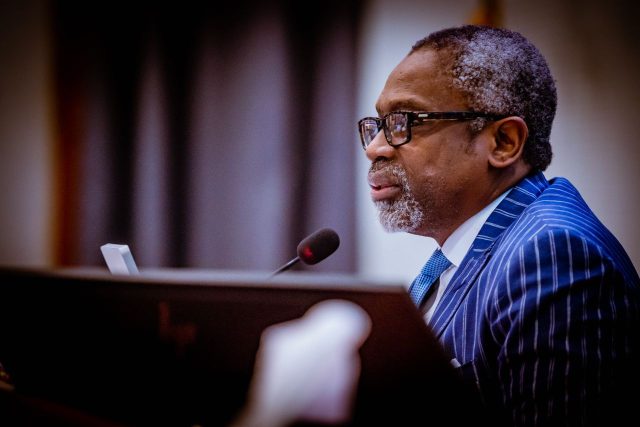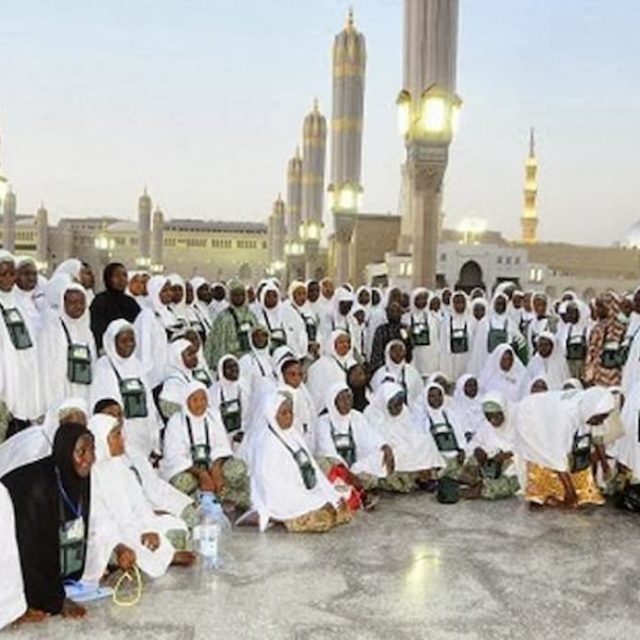
There has been several backlash from Nigerians against the calls to regulate social media.

Social media censorship has become a recurring trend in today’s globalised world, given the fact that some online platforms have become serious tools for the perpetration of multiple forms of vices, however, it is impossible to outline the importance of access to information on the Internet and social media, as it also provides young people with a range of benefits and opportunities to empower themselves in a variety of ways amongst so many other things.
In Nigeria, there have been several calls to regulate social media which has received backlash from citizens across political divides.
Recently, there was a renewed call for the regulation of social media by Femi Gbajabiamila, the chief of staff to President Bola Tinubu, saying it has become a societal menace.
While some commended him, pointing out that a lot of fake news is being circulated on social media, others roundly condemned him, saying that it is a way of stripping citizens of their freedom to call out bad politicians.
Some others say, banning social media sites might be the next target of a government that doesn’t want to be held on its toes or be accountable to the people.
Gbajabiamila had expressed his view while representing Tinubu at the public presentation of a book titled “Nigerian Public Discourse: The Interplay of Empirical Evidence and Hyperbole,” authored by Babatunde Fashola, former minister of works and housing in Lagos State.
Speaking at the event, he said, “Social media has become a societal menace and must be regulated. Many people do not understand that once the send button is hit, there is a potential to reach millions of people around the world which is capable of causing great danger not just in society but even unintended consequences to the individuals who are receiving information that may include security of life.”
The recurring fight against social media
The 1999 Constitution has freedom of speech as an inalienable right of citizens. Also, the United Nations Universal Declaration on Human Rights (UDHR) equally noted freedom of speech as a basic right of individuals.
Before now, The federal government has made several attempts to control online platforms and social media. For example, in 2015, the National Assembly launched a campaign against social media abuse and attempted to regulate it through the introduction of an anti-social media bill by the eighth Senate. The bill caused a stir nationwide and was eventually withdrawn.
In 2019, the Anti-social Media Bill titled; “Protection from Internet Falsehood and Manipulations Bill 2019,” was eventually introduced by Senator Mohammed Sani Musa (APC, Niger East).
Following the bill’s second reading on the Senate floor, rumours circulated on social media that the bill’s sponsor had plagiarised a similar law from Singapore which he denied.
The Federal Government also banned Twitter on June 4, 2021, after the social media platform deleted a post it deemed offensive by former President Muhammadu Buhari.
Again, on June 13, 2022, the National Information Technology Development Agency (NITDA) released an 11-page document, which it called a draft Code of Practice for Interactive Computer Service Platforms/Internet Intermediaries. However, all the attempts couldn’t sail through.
Recently, Mr. Dele Alake, President Bola Tinubu’s Minister of Solid Minerals, argued in favour of strengthening social media regulation laws during his Senate confirmation hearing for a ministerial position.
According to Alake, social media’s negative aspects are bad for a morally upright society, pointing out that, “even victims of libel, aspersion, defamation and all kinds of negativity hesitate to apply the existing laws on the culprits.”
From all indications, the Federal Government seems bent on regulation as the Director-General, of the National Broadcasting Commission (NBC) Balarabe Ilelah, recently disclosed that a bill to regulate social media platforms had been sent to the National Assembly.
According to him, the bill is seeking to repeal and reenact the NBC Act, CAP L11 laws of the Federation of Nigeria 2004.
Meanwhile, the Socio-Economic Rights and Accountability Project called on the Senate President, Godswill Akpabio, and the speaker of the House of Representatives, Tajudeen Abbas, to reject the bill arguing that the bill could unduly restrict freedom of expression and privacy rights.
Attack on NGOs and Civil Society space?
A controversial Bill seeking to subject all the activities of Civil Society Organisations (CSOs) and Non-Governmental Organisations (NGOs) was recently re-introduced in the House of Representatives but was eventually stepped down on Thursday after a much-heated debate amongst members of the green chamber.
The bill titled, “Bill for an Act to Establish Non-Governmental and Civil Society Organisations Agency for the Promotion of Social Development Activities in Nigeria and for Related Matters” (HB. 941)’ was sponsored by Rep. Sada Soli (APC, Katsina).
READ ALSO: Reps reintroduce controversial NGO regulation bill
Interestingly this is not the first time the bill is being raised as the same lawmaker had in July 2022 raised it in the 9th House.
Similarly, in 2017, Rep Buba Jubrin sponsored an NGOs and CSOs regulation bill that passed a second reading and was subsequently referred to the Committee on Civil Society Organisations and Development Partners which was chaired by Rep. Peter Akpatason (APC, Edo) but on the day of the public hearing of the bill, protesters marched to the National Assembly calling for the bill to be dropped saying that it was an attempt by the government to muzzle civil societies.
Non-governmental and civil society organisations exist as watchdogs who ensure hold the government accountable, advocating for good governance, transparency, and accountability.
Conclusion
With these recent developments, there is no doubt that some people in power are out to limit the fundamental right of citizens which is why there has been an increased call for social media censorship.
It is imperative to acknowledge the NGOs’ and CSOs’ significance in advancing the liberty of association, championing the rights of citizens, and engaging in public affairs. Could this also be the reason for a call to regulate them?





